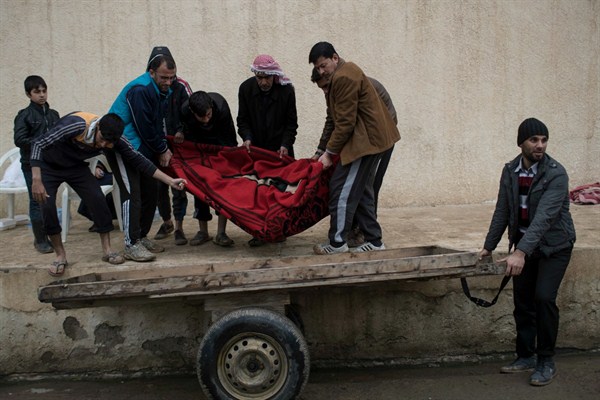Iraqi Prime Minister Haider al-Abadi visited Washington last week, and the Trump administration greeted him by approving more troops for the fight to retake Mosul and defeat the so-called Islamic State. The Iraqi government, for all its flaws, is taking the needed risks to regain control of its territory, and its leaders know that political reconciliation is vital. The Trump administration, for its part, is focused on winning the war. What remains to be seen is whether Washington will devote the necessary resources to winning the peace, and whether the Iraqis have a plan for doing so that the U.S. can support.
In recent days, Iraq has been back on the agenda in Washington. Abadi came to town meet with U.S. President Donald Trump and to attend the first meeting in two years of all the countries that comprise the U.S.-led coalition fighting the Islamic State in Iraq and Syria. He spoke publicly about the challenges facing Iraq, but was mostly upbeat about the progress made against the Islamic State, the demonstrated improved capacity of Iraqi national forces, and his own commitment to the hard political work ahead to create domestic peace. Abadi spoke with pride about the work done by Iraqi security forces to win the trust of the local population and to coordinate militarily with the Kurdish military forces known as the peshmerga. He also talked about of a rising mood of national unity and purpose in his country.
Recapturing Mosul has been a long, hard slog that has at least temporarily compounded Iraq’s humanitarian crisis, but it had to be done. Any further delay would have been an existential threat to the viability of Iraq as a sovereign state. Abadi and his armed forces, working with the U.S.-led coalition, prepared for the assault for much of 2016. By January, the eastern half of the city was liberated.

